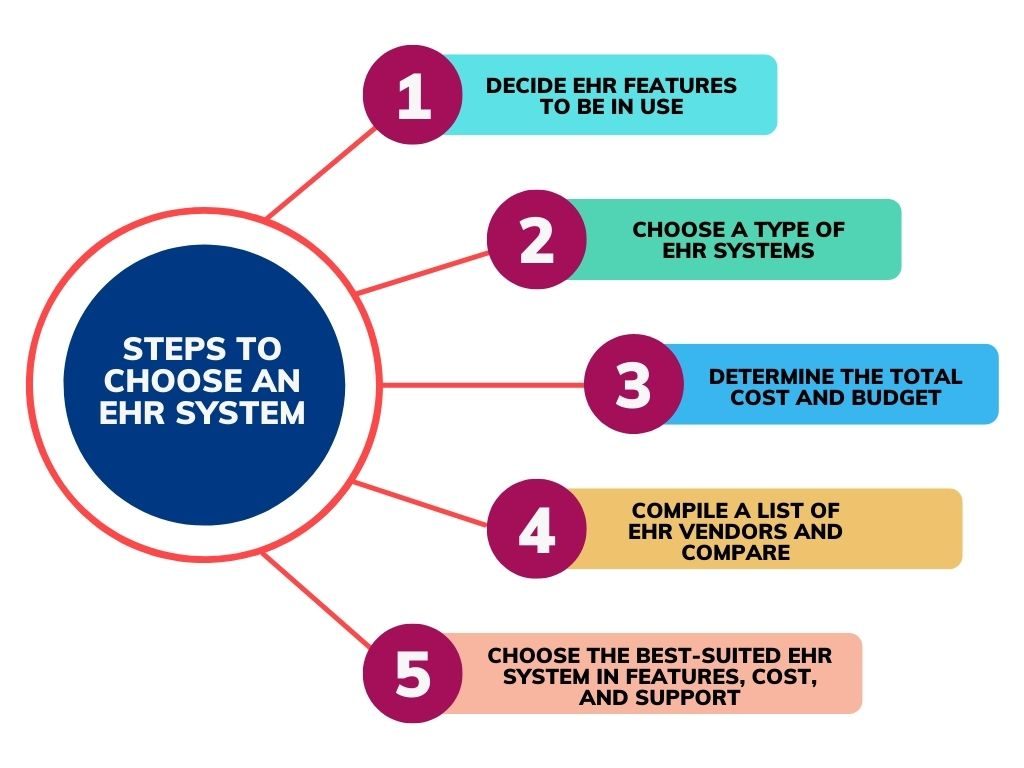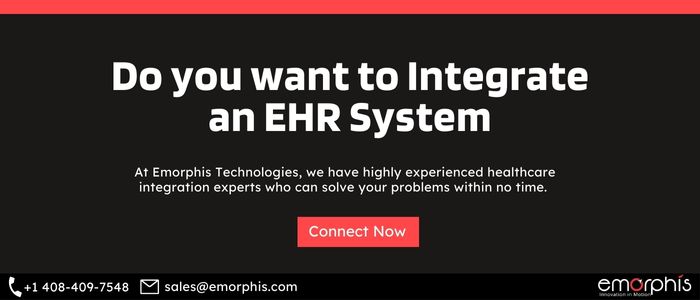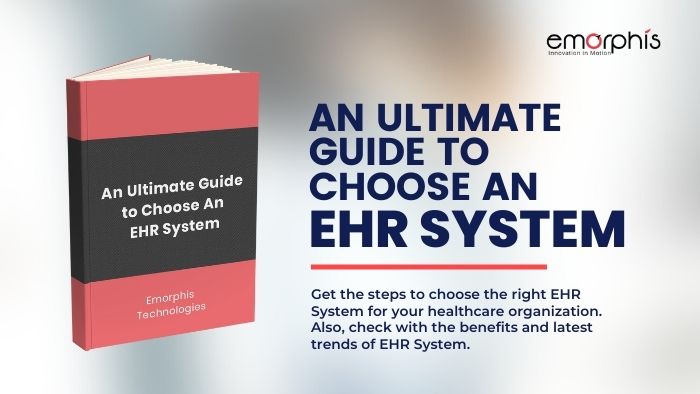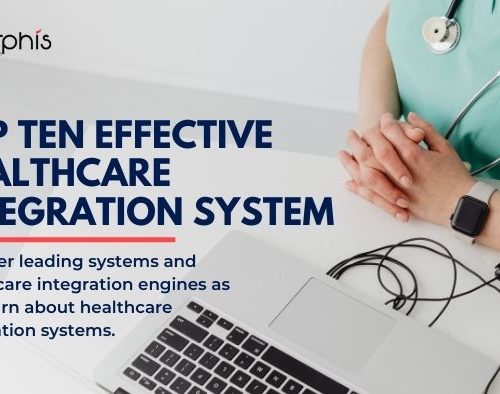Overview
The EHR is a complicated system that can be challenging to use. However, there are many benefits for doctors who do invest time in learning how their own hospital’s software works–including increased patient contact and better ability to match patients up with medications tailored just right for them!
Often for excellent reasons, medical teams either like or dislike EHRs. As the main reason for physician burnout and work discontent, EHRs are often quoted. Doctors using EHRs felt less happy with the time spent on clerical assignments and at a greater risk of professional burnout. According to a research report published by KLAS, 26% of clinicians in this global research report have at least some symptoms of burnout.
Also, 62% of health practitioners are pleased with their EHR, 20% are frustrated, and 18% are indifferent. Clinicians in the Middle East generally express the greatest EHR satisfaction. As a matter of fact, on the training and education level globally, just 11% of clinicians strongly agree that their ongoing EHR education is sufficient, and almost two-thirds would like additional training. Also, it has been found in early studies and reports that globally the use of EHR-personalization tools would likely have a significant impact on EHR satisfaction.

What are the types of EHR Systems?
Web Based EHR
A web-based EHR system is a type of electronic health records software that can be accessed through a web browser. This type of system offers many benefits over traditional desktop-based EHRs, including increased flexibility and mobility, lower costs, and easier integration with other applications. Web-based EHRs also tend to be more user-friendly, since they can be accessed from any device with an internet connection. Perhaps the biggest advantage of a web-based EHR system is that it can be easily shared with other healthcare providers, patients, and caregivers. This type of system is an essential tool for improving communication and collaboration within the healthcare team.
Cloud Based EHR
A cloud-based EHR system is a type of electronic health record (EHR) software that is hosted on a remote server and accessed via the internet. Unlike traditional EHR systems, which are installed on-site and require an IT infrastructure, cloud-based EHRs are much easier to set up and use. They also offer a number of advantages, including lower costs, increased flexibility, and improved disaster recovery capabilities. Perhaps the most important advantage of cloud-based EHRs is that they allow care providers to access patient data from any location with an internet connection. This can be a huge benefit for providers who work in multiple locations or who travel frequently. In addition, cloud-based EHRs typically offer more robust functionality than traditional on-site EHRs, making them a better choice for busy practices.
SaaS EHR
SaaS EHR systems are electronic health records that are delivered via the software-as-a-service model. This means that instead of purchasing and installing EHR software on your own servers, you subscribe to a cloud-based EHR service. There are many benefits to using a SaaS EHR system, including lower up-front costs, scalability, and easier maintenance. In addition, SaaS EHR systems are often more user-friendly than traditional EHR software, making it a good choice for small practices or clinics that lack IT resources. However, it is important to note that not all SaaS EHR providers are equal. Be sure to do your research before selecting a SaaS EHR provider, in order to ensure that you select a reputable and high-quality provider.
What are the benefits of an EHR?
In a healthcare organization, EHR software is for storing and managing patient medical records. It includes a patient’s medical history, diagnoses, medications, treatment plans, and laboratory test results. The EHR software also generates reports, such as clinical decision support EHR systems and quality EHR systems. The EHR software is a critical tool for healthcare providers, as it helps to improve patient care and safety. In addition, the EHR software helps to increase efficiency and decrease costs. The EHR software is also used to meet accreditation standards. Healthcare organizations that use the EHR software are able to provide better care for their patients and improve their bottom line.
For Healthcare Professionals
As anyone who has ever tried to manage their medical records knows, it can be a daunting task. Medical records are often spread out across multiple office locations, making it difficult to keep track of everything. An EHR system can help to solve this problem by allowing healthcare professionals to store and manage their medical records in one central location. In addition, an EHR system can help to improve patient care by providing instant access to important medical information. With an EHR system in place, healthcare professionals can more easily identify trends and patterns in patient care, leading to better outcomes. In addition, an EHR system can also help to improve communication between different healthcare providers, leading to a higher level of coordination and care. As a result, an EHR system can be a valuable tool for any healthcare professional.
For Patients
There are many benefits that come along with having an EHR Software System for patients. One big benefit is that it gives patients the ability to have access to their own records. They can see their past medical history, immunizations, medications, and allergies. Having this information readily available to patients can help them make more informed decisions about their health. Patients can also elect to share their records with their doctors electronically instead of having to fill out paper forms every time they visit the doctor. This saves time and is more convenient for both the patient and the doctor. When all of a patient’s information is stored in one place, it is easier for doctors and specialists to access and share information. This can lead to the better overall coordination of care.
Steps for Selecting an EHR vendor
Electronic Health Records (EHR) are playing an important role in today’s healthcare industry, especially when it comes to regulatory program participation. When selecting an EHR system for your exercise, the stakes are high, and it can be difficult to understand where to begin. For this, we have provided the following steps to go through before choosing an EHR vendor. When it comes to choosing an EHR system, there are a few key factors to keep in mind.

The selection of an EHR vendor requires the following steps:
1. Decide EHR features to be in use
Not all features and functionalities matter and some matter more to others than they might to you. Take a moment to define your business goals and your patient need from an EHR to identify the EHR features and functionalities that matter most to you. By digitizing patient medical histories, EHRs have made it easier for doctors to access information and make more informed decisions. Some of the basic features include:
- A user-friendly interface: The system should be easy for clinicians to use so that they can quickly document patient encounters.
- Comprehensive clinical decision support: The system should provide alerts and reminders to help clinicians make the best decisions for their patients.
- Robust e-prescribing capabilities: The system should allow clinicians to quickly and easily prescribe medications.
- Integration with other systems: The system should be able to share data with other systems, such as hospital information systems or pharmacy benefit managers.
But as technology has progressed, so too have the features of EHR systems.
Here are some of the latest trends in EHR software.
- Data security: With the rise of cyberattacks, data security and healthcare cybersecurity has become a top priority for healthcare organizations. As a result, many EHR vendors are now offering features like encryption and 2-factor authentication to help protect patient data.
- Artificial intelligence: AI helps in a variety of industries to automate tasks and improve decision-making. In healthcare, AI is to help clinicians identify patterns and trends in patient data. Some EHR systems now offer features like machine learning and natural language processing to help users get the most out of their data.
- Patient engagement: With patients becoming more involved in their own healthcare, many EHR vendors are now offering features to help engage them in their care. For example, some systems now allow patients to schedule appointments and access their records online. Other systems offer tools for patients to track their health data and communicate with their care team.
As you can see, there are a number of trends and EHR features that are helping to improve healthcare. Once you know what matters most to you, you can narrow down your options and choose the EHR system that’s right for you.
2. Choose a type of EHR systems
EHR systems are vital for doctors and other medical professionals. They help to keep track of patient records, prescriptions, and appointments. Several different types of EHR systems are available, each with its own advantages and disadvantages.
The decision to choose between cloud-based, web-based or SaaS systems will depend on your needs. Cloud-based EHR systems are growing in popularity due to their flexibility and affordability. However, they can be less secure than other options and may not be compatible with all devices. A Web-based EHR system is accessible from any device which connects to the internet, making them a good option for busy medical professionals. However, they can be more expensive than other options. SaaS EHR systems are newer than other options but offer a number of advantages, including affordability and flexibility. However, they may not be as easy to use as other options.
Before deciding on an EHR system, it is important to consider the needs of your practice. Weigh the advantages and disadvantages of each option to make the best decision for your practice.
3. Determine the total cost and budget
The cost of an EHR system can vary depending on the features and functionality that you need. Generally, basic EHR software starts at around $500, while more comprehensive systems can cost up to $10,000. However, many factors can affect the final price tag, including the number of users, the size of your practice, and whether you need additional features such as e-prescribing or patient portals.
When it comes to choosing an EHR system, the upfront costs can seem like a deterrent. However, it’s important to consider the long-term benefits of an EHR system before making a decision. An EHR system can save you time and money by reducing A/R days and improving patient loyalty. In addition, an EHR system can make it easier to comply with HIPAA regulations. As a result, the total cost of an EHR system is usually lower than the cost of a traditional paper-based system. When budgeting for an EHR system, be sure to consider the long-term benefits of the system.
4. Compile a list of EHR vendors and compare
Now that you are aware of your budget, your prospective ROI, and the type of EHR system that suits your requirements best and has decided on the most significant characteristics for you, it’s time to begin selecting vendors to compare. Make a checklist of criteria and studies and talk to sales reps and check the boxes on your list for structured evaluation. You can compare them based on features, like the number of patients they allow per month, or trending features like whether their systems accept insurance companies’ payment options.
Here is a simple checklist for your reference, you can be sure to find the best EHR system for your needs.
- First, identify which attributes are most significant to you. Does e-prescribing meet your needs? Do you need a system with features for billing and scheduling? You can start to reduce your alternatives after you are aware of the qualities you require.
- Next, examine the user interface of each system. Is it user-friendly? Are you confident with the software’s interface?
- Finally, compare pricing plans. Make sure to factor in any additional costs, such as training or support fees. By taking the time to compare all of your options. As a matter of fact, you can be sure to find the best EHR system for your practice.
5. Choose the best-suited EHR System in features, cost, and support
Now that your search has been narrowed down, make a final assessment of your alternatives. Read reviews, ask sales individuals for referrals, and do your due diligence. When it comes to choosing an EHR system, it’s important to make sure that all the pieces fit together. In terms of features, you will want to make sure that the system has all of the functionality that you need to support your workflow.
Also, in terms of cost, you will want to make sure that the system is affordable and that the cost of implementation is reasonable. And in terms of support, you want to make sure that there is a team in place to help you with any questions or issues that may come up.
Hence, as a matter of fact, the system should be able to support the features you need. And it should be affordable to implement and maintain. It’s also important to make sure that you’ll be able to get help when you need it. By doing your research and taking the time to assess your options. You can be confident that you’re making the best decision for your practice.
If you need a switch from an old to a new EHR system then consider the following.
When it comes to switching to a new EHR system. It’s important to carefully weigh the pros and cons before making a decision. On the one hand, a new system can offer improved functionality and greater efficiency. On the other hand, migrating to a new system can be a time-consuming and labor-intensive process. There’s also the question of cost: a new EHR system can be pricey. And you’ll need to make sure you have the budget to cover the upfront cost and ongoing maintenance. Before making a decision, take the time to assess your needs and compare the various options on the market. Once you’ve found a system that meets your needs. Be sure to have a well-defined onboarding process in place to ensure a smooth transition.
Hence, EHR migration schemes are labor-intensive and time-consuming. Also, need to have a well-defined onboarding method with a well-equipped support team for the vendors you are assessing.
Switching EHR vendors
As electronic health record systems have become more commonplace. Many vendors have sprung up to provide this software to healthcare providers. However, not all EHR systems are equal, and the needs of healthcare organizations change. It may be necessary to switch to a different vendor. There are a few things to keep in mind when considering whether or not to change EHR vendors.
First, think about why you want to make the switch. Are you looking for more features? Better customer support? A lower price? Once you know what you’re looking for. You can narrow down your options and find the vendor that best meets your needs.
Another important consideration is whether or not your current system can be easily migrated to a new vendor. Some vendors may charge a high fee for data migration. So it’s important to check with your current provider before making the switch.
Lastly, don’t forget to compare pricing and feature lists between vendors to make sure you’re getting the best deal. By taking the time to do your research, you can ensure that you find the perfect EHR system for your organization.
EHR Integration is in Trend
As the healthcare industry continues to evolve, so too does the way that medical professionals document and store patient information. In the past, paper records were the norm, but in recent years there has been a shift towards electronic health records (EHRs).
EHRs offer many benefits over paper records, including increased accuracy, better access to information, and improved organization. However, one of the challenges with EHRs is integrating them with other systems. This often works through middleware, which acts as a bridge between different software applications. However, middleware can be expensive and difficult to implement. As a result, many healthcare organizations are now turning to cloud-based solutions that offer seamless integration with existing EHR systems. You can consider healthcare integration services offered by some reputed healthcare software and application development companies. By using these solutions, healthcare organizations can improve the way they manage patient data and provide better care for their patients.
To achieve healthcare interoperability, learn about Redox Integration features, benefits, and solutions.
EHR and EMR solutions connected with healthcare applications provide various benefits and savings to healthcare organizations. Click to read about EHR And EMR Integration For Your Healthcare Organization.

Conclusion
EHR systems structure is to make the process of charting and managing patient records more efficient. Many providers find that using an EHR can help them save time on administrative tasks, freeing up more time to spend with patients. EHR software often includes features like customizable schedulers and easy navigation, which can help providers stay organized and efficient. In addition, many EHR systems allow providers to share patient charts with other members of the care team. This can help reduce errors and improve communication between providers. Ultimately, using an EHR system can help you to better manage your time and conduct your practice or hospital more smoothly.
At first glance, it may not seem like much, but with healthcare software development and EHR implementation and integration partners like Emorphis Technologies, you realize what a difference healthcare software consulting can provide you in your daily workflow. Before choosing an EHR or EMR system to integrate or implement, connect with our healthcare industry experts for more details.







